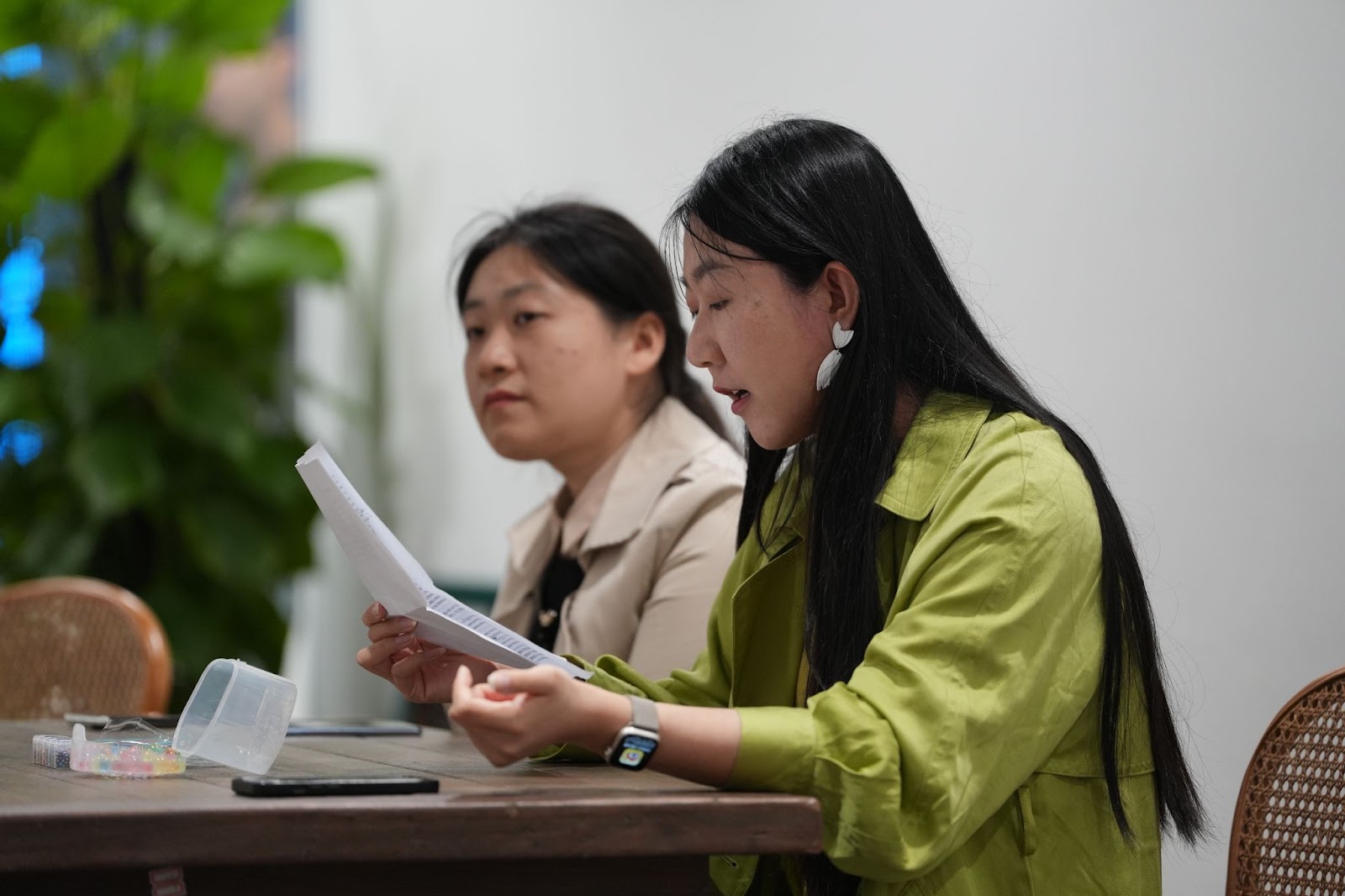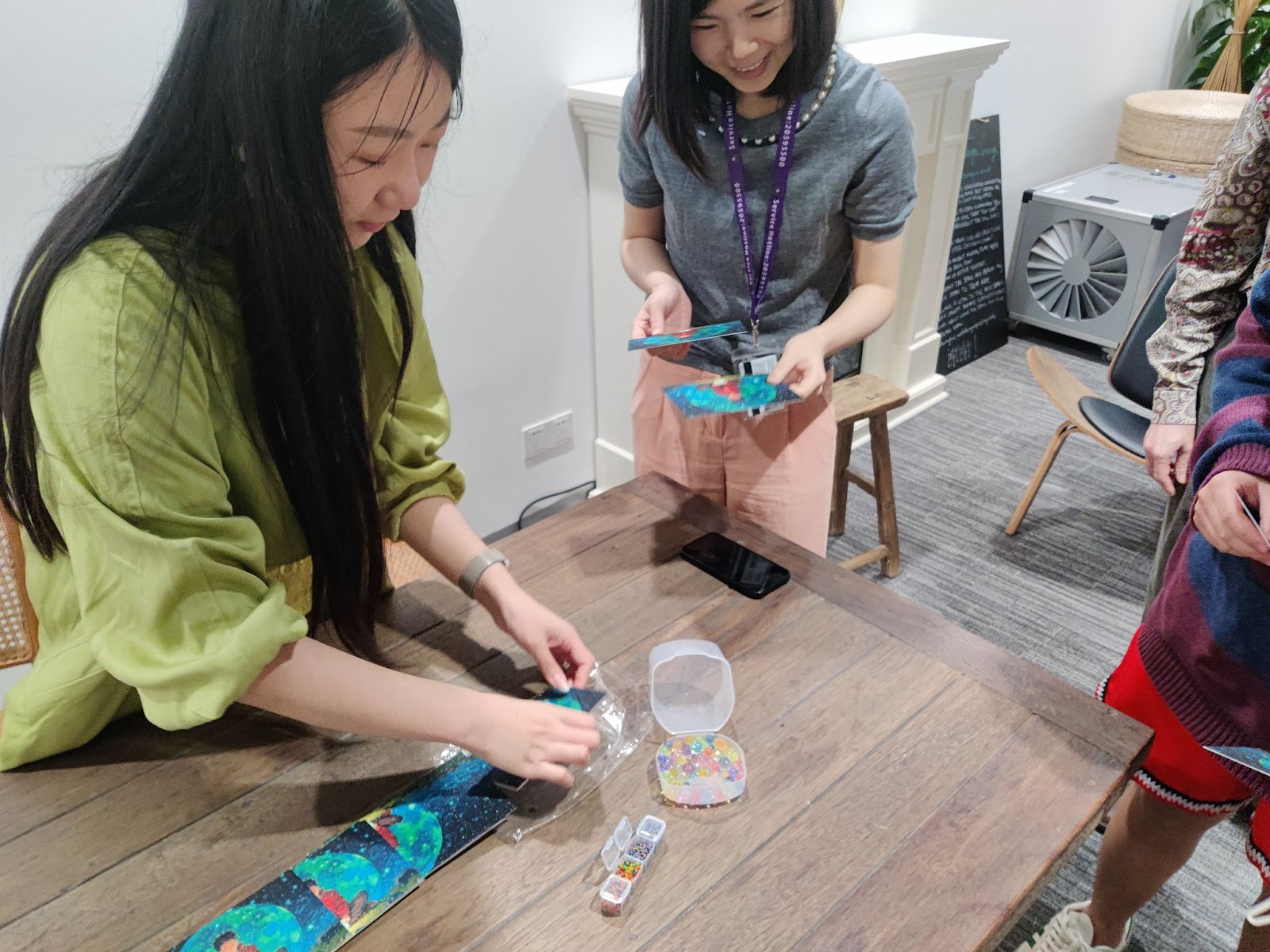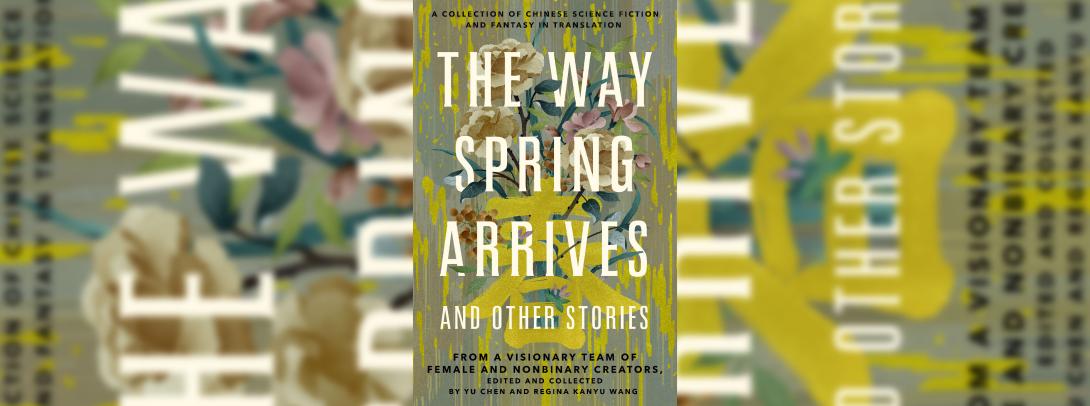Every year, the NYU Shanghai Reads Program selects a book for the campus community to read, and hosts events and programming throughout the academic year to spark intercultural dialogue. This year’s chosen text is The Way Spring Arrives and Other Stories, a collection of Chinese science fiction and fantasy written by women and nonbinary authors, translated into English. The collection brings together ancient Chinese mythology, science fiction, traditional belief, and fantasy, raising questions of the relationship between past, present, and future.
“We're [trying to create] spaces where the whole community can come together, have these interactive experiences, and share culture and ideas,” said Sarah Warfield, Senior Lecturer in English for Academic Purposes, who co-chairs the NYU Shanghai Reads Committee with Academic Resource Center Director Tong Jin. With themes such as environment, gender, and the relationship between humans and technology, the text appeals to many different audiences and has inspired a wide range of campus events.
Writing and Speaking Fellow Jo Gao, a member of the NYU Shanghai Reads Committee, said that the choice of the collection reflects the committee’s hopes to engage students, faculty, and staff in every discipline at NYU Shanghai. “I really hope that we can reach out to more people–not just people who are already interested in humanities and literature, and pick up on some of their interests,” she said. “Sci-fi can be an eye-opener to what literature can offer.”

Authors Xiu Xinyu and Nian Yu speak before an audience at NYU Shanghai
NYU Shanghai community members had the rare opportunity to meet two of the authors whose stories were featured in the collection: Nian Yu and Xiu Xinyu. The writers visited campus to discuss their stories, inspirations, and writing process, as well as answer questions from the community.
Xiu Xinyu spoke about how her work takes inspiration from details of her daily life. In her story “The Stars We Raised,” children raise stars as pets, only to exploit them as resources when they grow up. Xiu said that she was inspired by the ‘water babies’ she played with as a child, tiny beads that expand when submerged in water. As a child, Xiu said, she believed the ‘water babies’ were living creatures. “There's something inherently magical about a child's belief,” she said. “When we are children, we often feel that everything has a spirit. And we believed that we can make friends with everything–communicate with everything. That is the feeling I want to show in this story.”

Author Xiu Xinyu demonstrating her ‘water babies’
Xiu said that now, in her day job working in marketing for an online shopping platform, she witnesses new technological developments that spark her imagination. In a world where drones may be delivering packages instead of people, Xiu reflects on the changing relationship between people and technology–a theme that she is keen to explore in her own science-fiction and fantasy writing.
Another story in the collection, “A Brief History of Beinakin Disasters as Told in a Sinitic Language,” tells the story of two interstellar societies facing a disaster, and the ensuing exchange and struggle between the two groups. Author Nian Yu said that the disaster she conjured up in the story, called ‘the heat wave of death,’ was inspired by a natural phenomenon nicknamed ‘the icicle of death,’ which she learned about in a science documentary.
The science fiction genre allows us to explore possible versions of our reality or future based on the present moment. Sci-fi is often forward-looking, examines the relationship between humanity and science and technology, and can be an avenue for writers to bring forward veiled criticism of society. Global Perspectives on Society Postdoctoral Fellow June Ke led students, faculty, and staff in an exploration of sci-fi and mythology through an interactive talk.
While sci-fi often brings to mind the future, not many people consider its links with ancient or traditional modes of storytelling. To Ke, the two genres can complement each other. “[In the book,] it’s not that science is primary or that mythology is primary–they’re very much overlapping,” she said. “[...] Modernity excludes superstition and science often excludes mythology, but in this book, we have a coming together of the two–not as binary opposites but as two ways of explaining the world that can work together.”
The collection also explores the relationship between humans and technology, a conversation particularly relevant at NYU Shanghai where STEM fields like computer science and data science are popular. In the short story “Baby, I Love You,” written by Zhao Haihong and translated by Elizabeth Hanlon, a video game designer coerces his wife into having a baby, for the secret purpose of conducting research for a life-like, immersive ‘parenthood’ video game. Inspired by the short story, English for Academic Purposes Lecturer Paul Meloccaro led a discussion that encouraged participants to consider how the status of human thought, emotion, and creativity may change as artificial intelligence gains more capabilities.
As a work in translation, The Way Spring Arrives and Other Stories offered another way to analyze the writing through the lens of translation practices and theory. Clinical Assistant Professor of Spanish and Area Head of World Languages Allen Young, hosted a talk exploring the translation choices made in the short story “Dragonslaying,” written by Shen Yingying and translated by Emily Xueni Jin.
Translation must mediate between cultures and value systems of different languages, a responsibility that can carry significant political weight. Young encouraged participants to consider more critically the meaning gained and lost in translation.
In the original Chinese language version of the story, pronouns are not always necessary, allowing the author to avoid identifying the gender of jiaoren, fictional creatures that are half-fish and half-person. However, in English, the use of pronouns could not be avoided, leading the translator to use the pronoun ‘they.’ Young questioned whether this implies a choice to not identify gender or instead that the jiaoren are nonbinary.
The conversation surrounding gender and sexuality in translation are particularly relevant, as the story collection was written entirely by writers identifying as female or nonbinary. “I like that we’re featuring a very specific group of writers who might be marginalized or not really thought about in the context of English literature,” said Gao.
The NYU Shanghai Reads program has many more events lined up throughout the year, including a musical performance which will explore the relationship between art forms and cultural transformation. “You don't have to have read any of the stories in the book to attend our programming,” said Warfield. “We hope that attending the programming would inspire you to read a story.”


